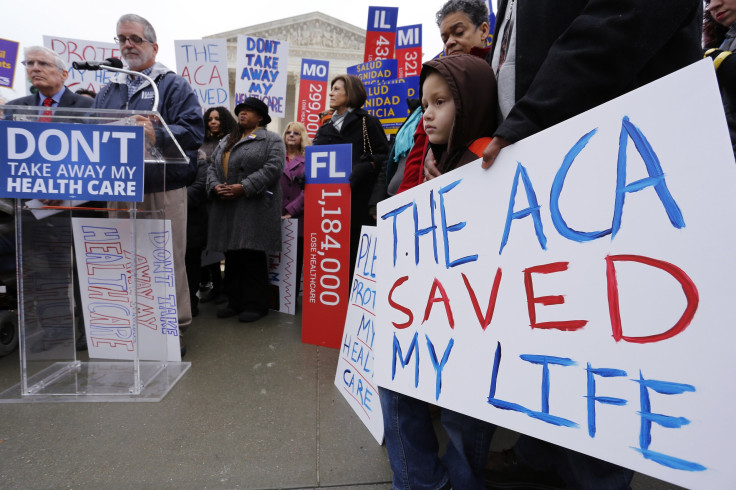Rising Cost Of Healthcare 2015: For Those Insured Through Work, A Steady, Steep Rise In Deductibles

Every year, those who have health insurance through their workplace pay a little bit more for that coverage. In 2015, monthly premiums rose an average of 4 percent over last year, similar to the 5 percent yearly growth over the past decade, a survey published Tuesday showed. But if those increases have been modest, out-of-pocket spending on deductibles has risen far faster, outpacing wages and inflation and potentially deterring people from going to the doctor.
Since 2010, the cost of deductibles has increased by 67 percent, significantly outstripping the 24 percent increase in premiums for individuals and a 10 percent increase in wages. The survey, conducted jointly by the Henry J. Kaiser Family Foundation and Health Research & Educational Trust, is one of a wealth of studies examining healthcare costs amid increased scrutiny following the passage of the Affordable Care Act, or Obamacare, in 2010 and its implementation over the past two years.
Under Obamacare, starting in 2015, employers with at least 100 full-time employees were required to offer health insurance that met a certain minimum. In 2016, companies with 50 or more full-time employees will be required to do so.
A single person with employee-based coverage pays an average of $1,071 annually for coverage, out of a total cost of $6,251 (the rest is covered by the company). The average annual deductible for that same individual was $1,318, according to the survey. A deductible is the total amount a consumer must pay before the insurance company starts to contribute.
Insurance deductibles are growing seven times faster than workers’ earnings http://t.co/h4gw7MP2wq pic.twitter.com/DicVr58Bjf
— Vox (@voxdotcom) September 22, 2015Deductibles’ significant rise in recent years has likely contributed to a slowdown in healthcare spending, Drew Altman, the president and CEO of the Kaiser Family Foundation, said in a statement.
In December, a federal audit showed that for five years in a row, healthcare spending in the U.S. increased by less than 5 percent. “The fact that healthcare spending growth has been so low for a number of years now does trickle down to what people themselves are actually paying out of their own pockets,” Larry Levitt, senior vice president at the Kaiser Family Foundation, said at the time, the Huffington Post reported.
The survey also found that healthcare plans offered by some companies had become narrower, likely in an effort to cut costs, with 9 percent of companies surveyed saying they had cut at least one hospital or health system from their network.
Firms also are offering health and wellness programs, perhaps also as part of a broader effort to encourage employees to be proactive about their health -- and, again, ultimately reduce healthcare costs. Nearly a third of large employers offered financial rewards for employees who underwent health screenings, while 38 percent offered incentives for participation in wellness programs ranging from quitting smoking to losing weight.
The survey was conducted from January to June 2015 and surveyed 1,997 public and private firms that had three or more employees.
© Copyright IBTimes 2025. All rights reserved.






















